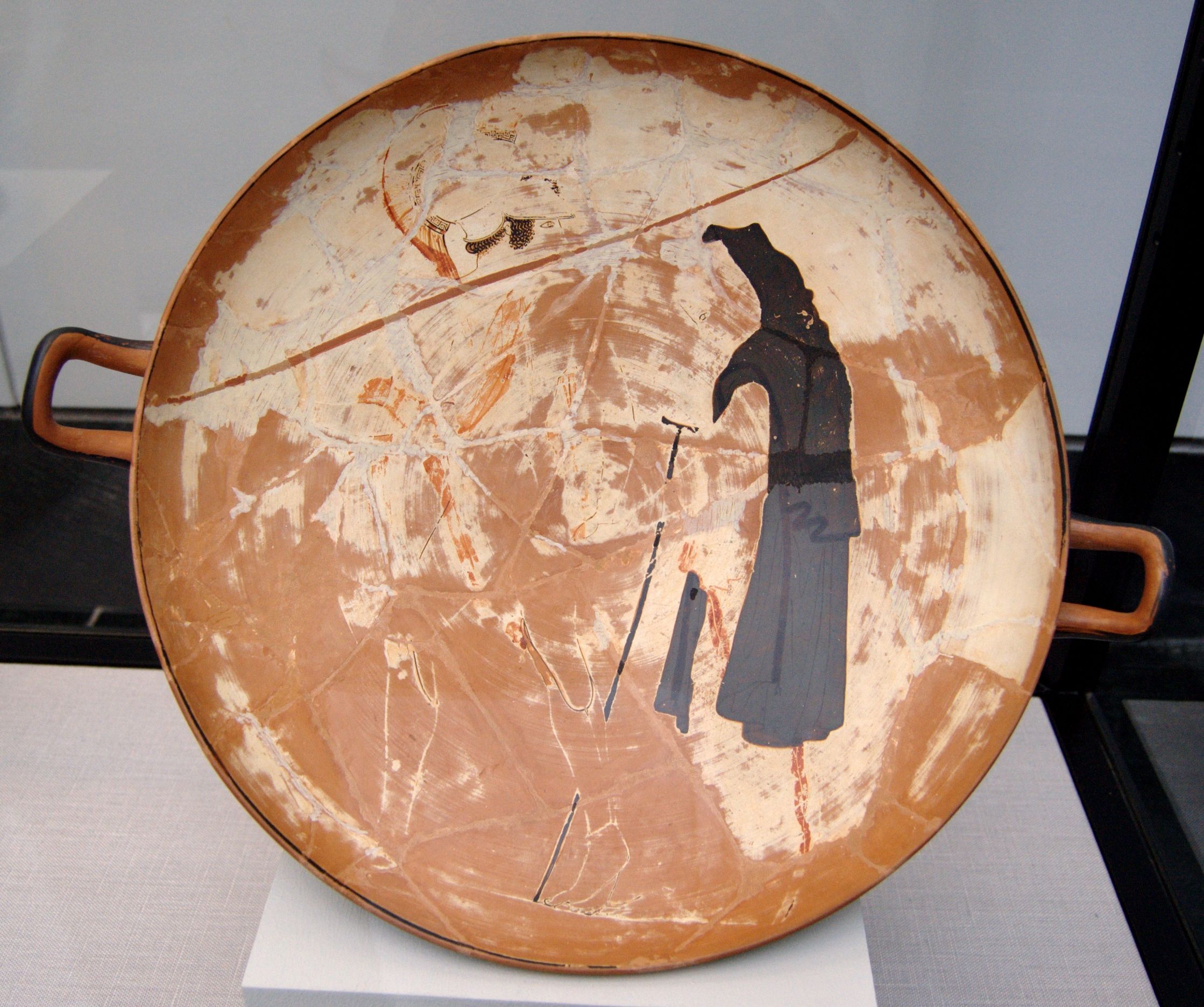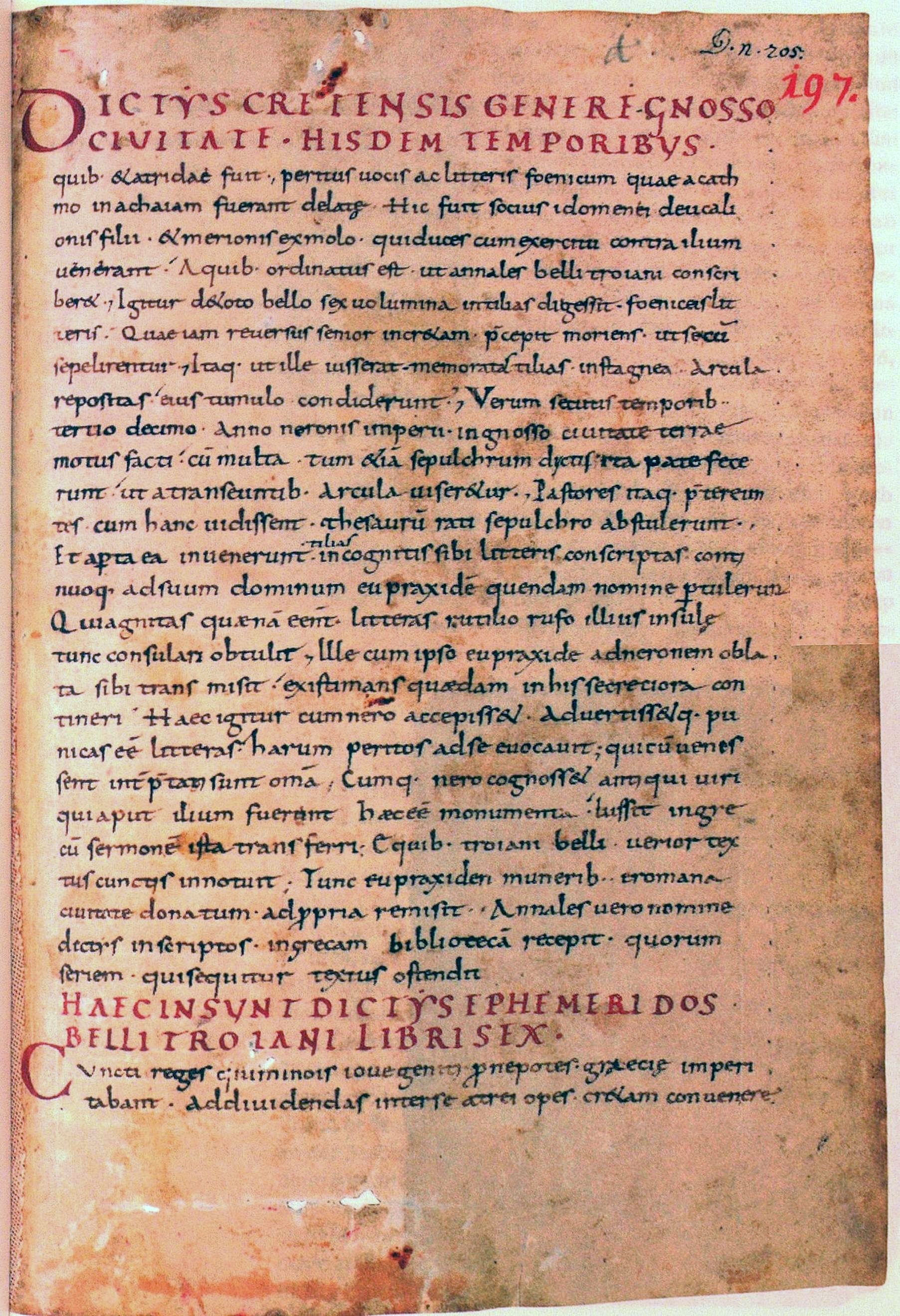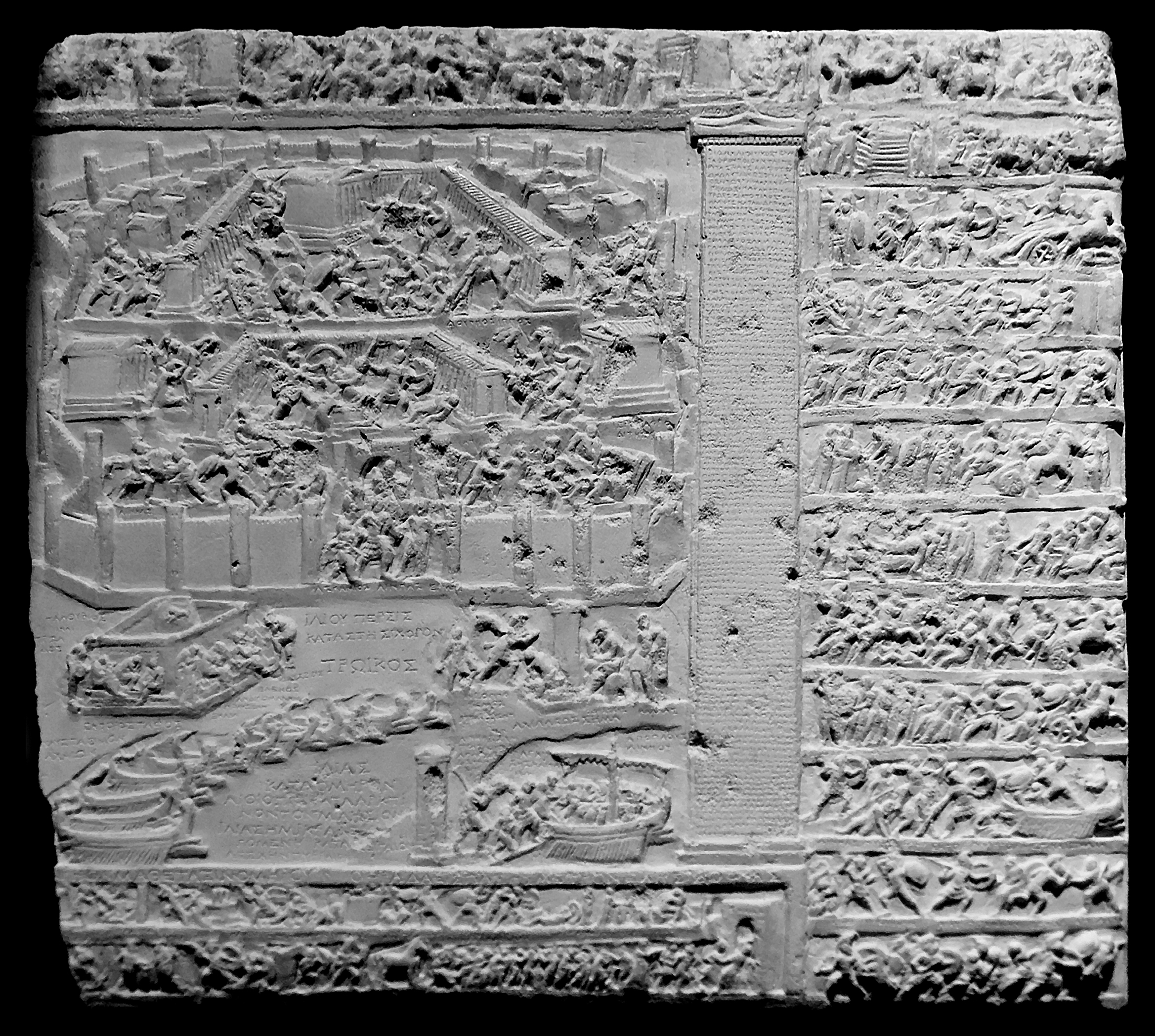|
Hippalces
In Greek mythology, Hippalces was the father of the "ox-eyed" Clymene by Aethra, daughter of Pittheus. These women were handmaidens of Helen at Troy.Homer, ''Iliad'' 3.144; Pausanias, ''Graeciae Descriptio'' 10.26.1 with reference to Stesichorus, ''The Sack of Troy;'' Dictys Cretensis, ''Trojan War Chronicle'' 1.3 & 5.13; Ovid, '' Heroides'' 17.267 Notes References * Bell, Robert E., ''Women of Classical Mythology: A Biographical Dictionary''. ABC-Clio. 1991. . * Dictys Cretensis'', from The Trojan War.'' ''The Chronicles of Dictys of Crete and Dares the Phrygian Dares Phrygius ( grc, ╬ö╬¼Žü╬ĘŽé), according to Homer, was a Trojan priest of Hephaestus. He was supposed to have been the author of an account of the destruction of Troy, and to have lived before Homer. A work in Latin, purporting to be a tra ...'' translated by Richard McIlwaine Frazer, Jr. (1931-). Indiana University Press. 1966Online version at the Topos Text Project. * Homer, ''The Iliad'' with ... [...More Info...] [...Related Items...] OR: [Wikipedia] [Google] [Baidu] |
Aethra (mother Of Theseus)
In Greek mythology, Aethra or Aithra (; grc, ╬æß╝┤╬ĖŽü╬▒, , the "bright sky") was a Troezenian princess as the daughter of King Pittheus. Family Aithra was the mother of Theseus (his father was King Aegeus of Athens, or in some versions, Poseidon) and of Clymene (by Hippalces). Aethra was also called Pittheis after her father Pittheus. Mythology Early life Bellerophon came to Troezen to ask Aethra's father, Pittheus, for the maiden's hand in marriage, but the hero was banished from Corinth before the nuptials took place. King Aegeus who was childless with his previous marriages went to Troezen, a city southwest of Athens that had as its patrons Athena and Poseidon. Here Pittheus got Aegeus drunk on unmixed wine and put him to bed with his daughter. Following the instructions of Athena in a dream, she left the sleeping Aegeus and waded across to the island of Sphairia that lay close to Troezen's shore. There she poured a libation to Sphairos, Pelops' charioteer, and ... [...More Info...] [...Related Items...] OR: [Wikipedia] [Google] [Baidu] |
Clymene (mythology)
In Greek mythology, the name Clymene or Klymene (; grc, ╬Ü╬╗Žģ╬╝╬Ł╬Į╬Ę ''Klum├®n─ō'' means 'fame') may refer to: * Clymene, the wife of the Titan Iapetus, was one of the 3,000 Oceanids, the daughters of the Titans Oceanus and his sister-spouse Tethys. She was the mother of Atlas, Epimetheus, Prometheus, and Menoetius; other authors relate the same of her sister Asia. A less common genealogy makes Clymene the mother of Deucalion by Prometheus. She may also be the Clymene referred to as the mother of Mnemosyne by Zeus.Hyginus, ''Fabulae'Preface/ref> In some myths, Clymene was one of the nymphs in the train of Cyrene. * Clymene, another Oceanid, was given as the wife to King Merops of Aethiopia and was, by Helios, the mother of Phaethon and the Heliades. Others include: * Clymene, the name of one or two Nereid(s), 50 sea-nymph daughters of the 'Old Man of the Sea' Nereus and the Oceanid Doris. Clymene and her other sisters appeared to Thetis when she cries out in sympathy for t ... [...More Info...] [...Related Items...] OR: [Wikipedia] [Google] [Baidu] |
Greek Mythology
A major branch of classical mythology, Greek mythology is the body of myths originally told by the Ancient Greece, ancient Greeks, and a genre of Ancient Greek folklore. These stories concern the Cosmogony, origin and Cosmology#Metaphysical cosmology, nature of the world, the lives and activities of List of Greek mythological figures, deities, Greek hero cult, heroes, and List of Greek mythological creatures, mythological creatures, and the origins and significance of the ancient Greeks' own cult (religious practice), cult and ritual practices. Modern scholars study the myths to shed light on the religious and political institutions of ancient Greece, and to better understand the nature of myth-making itself. The Greek myths were initially propagated in an oral tradition, oral-poetic tradition most likely by Minoan civilization, Minoan and Mycenaean Greece, Mycenaean singers starting in the 18th century BC; eventually the myths of the heroes of the Trojan War and its after ... [...More Info...] [...Related Items...] OR: [Wikipedia] [Google] [Baidu] |
Scholia
Scholia (singular scholium or scholion, from grc, ŽāŽćŽī╬╗╬╣╬┐╬Į, "comment, interpretation") are grammatical, critical, or explanatory comments ŌĆō original or copied from prior commentaries ŌĆō which are inserted in the margin of the manuscript of ancient authors, as glosses. One who writes scholia is a scholiast. The earliest attested use of the word dates to the 1st century BC. History Ancient scholia are important sources of information about many aspects of the ancient world, especially ancient literary history. The earliest scholia, usually anonymous, date to the 5th or 4th century BC (such as the ''scholia minora'' to the ''Iliad''). The practice of compiling scholia continued to late Byzantine times, outstanding examples being Archbishop Eustathius' massive commentaries to Homer in the 12th century and the ''scholia recentiora'' of Thomas Magister, Demetrius Triclinius and Manuel Moschopoulos in the 14th. Scholia were altered by successive copyists an ... [...More Info...] [...Related Items...] OR: [Wikipedia] [Google] [Baidu] |
Homer
Homer (; grc, ßĮŹ╬╝╬ĘŽü╬┐Žé , ''H├│m─ōros'') (born ) was a Greek poet who is credited as the author of the ''Iliad'' and the ''Odyssey'', two epic poems that are foundational works of ancient Greek literature. Homer is considered one of the most revered and influential authors in history. Homer's ''Iliad'' centers on a quarrel between King Agamemnon and the warrior Achilles during the last year of the Trojan War. The ''Odyssey'' chronicles the ten-year journey of Odysseus, king of Ithaca, back to his home after the fall of Troy. The poems are in Homeric Greek, also known as Epic Greek, a literary language which shows a mixture of features of the Ionic and Aeolic dialects from different centuries; the predominant influence is Eastern Ionic. Most researchers believe that the poems were originally transmitted orally. Homer's epic poems shaped aspects of ancient Greek culture and education, fostering ideals of heroism, glory, and honor. To Plato, Homer was simply the one who ... [...More Info...] [...Related Items...] OR: [Wikipedia] [Google] [Baidu] |
Iliad
The ''Iliad'' (; grc, ß╝Ė╬╗╬╣╬¼Žé, Ili├Īs, ; "a poem about Ilium") is one of two major ancient Greek epic poems attributed to Homer. It is one of the oldest extant works of literature still widely read by modern audiences. As with the ''Odyssey'', the poem is divided into 24 books and contains 15,693 lines in its most widely accepted version, and was written in dactylic hexameter. Set towards the end of the Trojan War, a ten-year siege of the city of Troy by a coalition of Mycenaean Greek states, the poem depicts significant events in the siege's final weeks. In particular, it depicts a fierce quarrel between King Agamemnon and a celebrated warrior, Achilles. It is a central part of the Epic Cycle. The ''Iliad'' is often regarded as the first substantial piece of European literature. The ''Iliad'', and the ''Odyssey'', were likely written down in Homeric Greek, a literary amalgam of Ionic Greek and other dialects, probably around the late 8th or early 7th century BC. Homer's ... [...More Info...] [...Related Items...] OR: [Wikipedia] [Google] [Baidu] |
Pittheus
In Greek mythology, Pittheus (; grc, ╬Ā╬╣Žä╬Ė╬ĄŽŹŽé) was the king of Troezen, city in Argolis, which he had named after his brother Troezen. Biography Pittheus was a son of Pelops and Dia (maybe another name for Hippodamia), father of AethraDiodorus Siculus. ''Bibliotheca Historica, Book 4.59.1'' and Henioche, and grandfather and instructor of Theseus. He was described by Euripides as the most pious son of Pelops, a wise man, and well versed on understanding the oracle thus sought by Aegeus.Euripides''. Medea683'' Plutarch. ''Life of Theseus, 3.4'' Pittheus is said to have taught the art of speaking, and even to have written a book upon it. Plutarch spoke of Pittheus' account in the following verses: ittheushad the highest repute as a man versed in the lore of his times and of the greatest wisdom. Now the wisdom of that day had some such form and force as that for which Hesiod was famous, especially in the sententious maxims of his 'Works and Days' .One of these maxims is a ... [...More Info...] [...Related Items...] OR: [Wikipedia] [Google] [Baidu] |
Dictys Cretensis
Dictys Cretensis, i.e. Dictys of Crete (, ; grc, ╬ö╬»╬║ŽäŽģŽé ßĮü ╬ÜŽü╬«Žé) of Knossos was a legendary companion of Idomeneus during the Trojan War, and the purported author of a diary of its events, that deployed some of the same materials worked up by Homer for the ''Iliad''. The story of his journal, an amusing fiction addressed to a knowledgeable Alexandrian audience, came to be taken literally during Late Antiquity. Literary history In the 4th century AD a certain Q. Septimius brought out ''Dictys Cretensis Ephemeris belli Trojani'' ("Dictys of Crete, chronicle of the Trojan War") in six books, a work that professed to be a Latin translation of the Greek version. Its chief interest lies in the fact that, as knowledge of Greek waned and disappeared in Western Europe, this and the ''De excidio Trojae'' of Dares Phrygius were the sources from which the Homeric legends were transmitted to the Romance literature of the Middle Ages. An elaborate frame story presented in the prolog ... [...More Info...] [...Related Items...] OR: [Wikipedia] [Google] [Baidu] |
Helen Of Troy
Helen of Troy, Helen, Helena, (Ancient Greek: ß╝Ö╬╗╬Ł╬Į╬Ę ''Hel├®n─ō'', ) also known as beautiful Helen, Helen of Argos, or Helen of Sparta, was a figure in Greek mythology said to have been the most beautiful woman in the world. She was believed to have been the daughter of Zeus and Leda, and was the sister of Clytemnestra, Castor and Pollux, Philonoe, Phoebe and Timandra. She was married to King Menelaus of Sparta "who became by her the father of Hermione, and, according to others, of Nicostratus also." The usual tradition is that after the goddess Aphrodite promised her to Paris in the Judgement of Paris, she was seduced by him and carried off to Troy. This resulted in the Trojan War when the Achaeans set out to reclaim her. Another ancient tradition, told by Stesichorus, tells of how "not she, but her wraith only, had passed to Troy, while she was borne by the Gods to the land of Egypt, and there remained until the day when her lord Menelaus, turning aside on the homewar ... [...More Info...] [...Related Items...] OR: [Wikipedia] [Google] [Baidu] |
Troy
Troy ( el, ╬żŽü╬┐╬»╬▒ and Latin: Troia, Hittite language, Hittite: Æŗ½ÆŖÆÆä┐ÆŖŁ ''Truwi┼Īa'') or Ilion ( el, ╬Ŗ╬╗╬╣╬┐╬Į and Latin: Ilium, Hittite language, Hittite: ÆāŠÆć╗ÆŖŁ ''Wilu┼Īa'') was an ancient city located at Hisarlik in present-day Turkey, south-west of ├ćanakkale and about miles east of the Aegean Sea. It is known as the setting for the Greek mythology, Greek myth of the Trojan War. In Ancient Greek literature, Troy is portrayed as a powerful kingdom of the Greek Heroic Age, Heroic Age, a mythic era when monsters roamed the earth and gods interacted directly with humans. The city was said to have ruled the Troad until the Trojan War led to its complete destruction at the hands of the Greeks. The story of its destruction was one of the cornerstones of Greek mythology and literature, featuring prominently in the ''Iliad'' and the ''Odyssey'', and referenced in numerous other poems and plays. Its legacy played a large role in Greek society, with many prominent ... [...More Info...] [...Related Items...] OR: [Wikipedia] [Google] [Baidu] |
Pausanias (geographer)
Pausanias ( /p╔ö╦É╦łse╔¬ni╔Ös/; grc-gre, ╬Ā╬▒ŽģŽā╬▒╬Į╬»╬▒Žé; c.ŌĆē110 ŌĆō c.ŌĆē180) was a Greek traveler and geographer of the second century AD. He is famous for his ''Description of Greece'' (, ), a lengthy work that describes ancient Greece from his firsthand observations. ''Description of Greece'' provides crucial information for making links between classical literature and modern archaeology. Biography Not much is known about Pausanias apart from what historians can piece together from his own writing. However, it is mostly certain that he was born c.ŌĆē110 AD into a Greek family and was probably a native of Lydia in Asia Minor. From c. 150 until his death in 180, Pausanias travelled through the mainland of Greece, writing about various monuments, sacred spaces, and significant geographical sites along the way. In writing ''Description of Greece'', Pausanias sought to put together a lasting written account of "all things Greek", or ''panta ta hellenika''. Living in t ... [...More Info...] [...Related Items...] OR: [Wikipedia] [Google] [Baidu] |
Stesichorus
Stesichorus (; grc-gre, ╬ŻŽä╬ĘŽā╬»Žć╬┐Žü╬┐Žé, ''St─ōsichoros''; c. 630 ŌĆō 555 BC) was a Greek lyric poet native of today's Calabria (Southern Italy). He is best known for telling epic stories in lyric metres, and for some ancient traditions about his life, such as his opposition to the tyrant Phalaris, and the blindness he is said to have incurred and cured by composing verses first insulting and then flattering to Helen of Troy. He was ranked among the nine lyric poets esteemed by the scholars of Hellenistic Alexandria, and yet his work attracted relatively little interest among ancient commentators, so that remarkably few fragments of his poetry now survive. As David Campbell notes: "Time has dealt more harshly with Stesichorus than with any other major lyric poet." Recent discoveries, recorded on Egyptian papyrus (notably and controversially, the Lille Stesichorus),P.J. Parsons, "The Lille Stesichorus", ''Zeitschreift f├╝r Papyrologie und Epigraphik'' Vol. 26 (1977), pages 7Ō ... [...More Info...] [...Related Items...] OR: [Wikipedia] [Google] [Baidu] |



_-_Homer_and_his_Guide_(1874).jpg)



